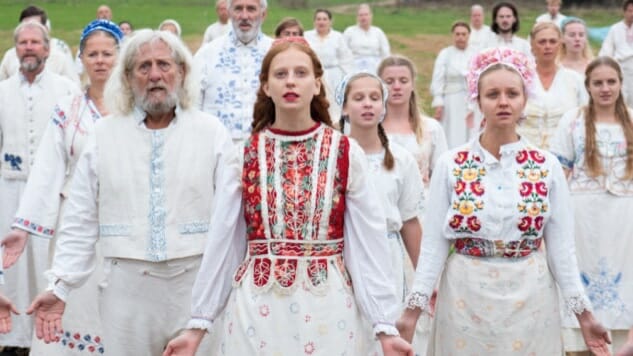Midsommar Flies Its Red Flags in Broad Daylight
Aster’s sophomore effort finds horror in the normalization of violence.

(Note: Be sure to read Paste’s full review of Midsommar by Dom Sinacola and be wary of spoilers for it in this article.)

Midsommar begins with its female protagonist’s very real worries and emotional needs minimized and belittled, and it ends with her ensconced in what looks for all the world like acceptance and empowerment. It is a movie where self-centered, lazy, trifling men are ready to excuse any evil, as long as local authorities assure them that it’s normal and totally fine. As a sophomore effort from director Ari Aster—the guy fueling eye-rolling cinephile conversations about whether we’re seeing a trend of “elevated” horror—it’s proof that his ability to get under the audience’s skin with last year’s Hereditary wasn’t a fluke.
Some of the themes and setups in Midsommar will feel familiar, but where Hereditary was a journey into grief and guilt within a family, Midsommar is a view of how a smart, sensible person can find herself trapped in a spiral of abuse, all in service to a culture that smiles as it destroys.
-

-

-

-

-

-

-

-

-

-

-

-

-

-

-

-

-

-

-

-

-

-

-

-

-

-

-

-

-

-

-

-

-

-

-

-

-

-

-

-











































